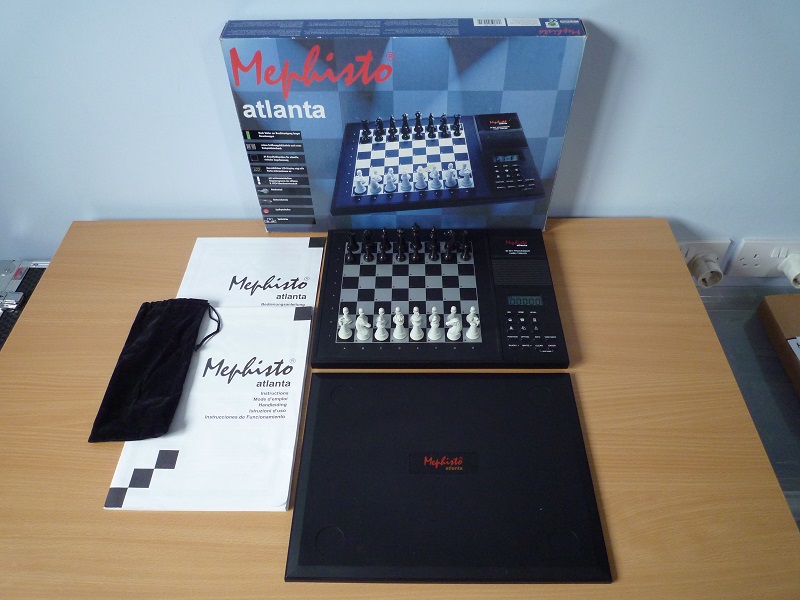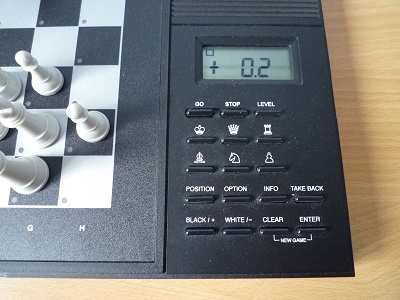|
During the 1990s Mephisto released a series of strong ‘laptop’ design press sensory chess computers with programs by three of their top programmers Richard Lang, Ed Schroder and Frans Morsch. These machines were in direct competition with one another. Lang programmed the Berlin 68000, Berlin Professional 68020 and Berlin Pro London. Schroder was responsible for the Milano and Nigel Short, and Morsch programmed the Modena, Milano Pro and Atlanta. The last of these the Atlanta, was released in August 1997 and available in the UK from that October for £379. It was promoted as an upgraded Milano Pro but was in fact a much stronger machine with hash tables enabling it to quickly get to good search depths. It was also claimed to include an endgame database and had the advantage of 64 LEDs, one per square, an improvement on the Milano Pro’s 16 edge LEDs. Eric Hallsworth was sufficiently enthused to proclaim it “the best new product to hit the market for ages.”
However in Strong Group One it was my least favourite chess computer. Perhaps my opinion coloured by a faulty Ebay purchase of ten years ago. Let down by the seller I attempted to mend the Atlanta but found I was unable to get inside the case wihout destroying it. They are fiendishly made to thwart repairs. As a chess computer to own I have other complaints. The lids of the later ‘laptop’ Mephisto chess computers are awkward to prise open. They loosen a bit with use but one shouldn’t have to wrestle with an expensive gadget before you can use it. Secondly evaluations and other game information is limited by the chunky five digit display. The Atlanta compares unfavourably with the Lang and Schroder machines which have two line 16 digit displays and excellent game information. Thirdly my Atlanta sensory board is overly sensitive leading to plenty of false moves and error beeps.
However despite those criticisms the Atlanta performed well in Strong Group One as the crosstable shows. It has a reputation for being tactically strong and particularly effective at Active Chess. I cannot say I noticed any particular weaknesses in the endgame either.
|


